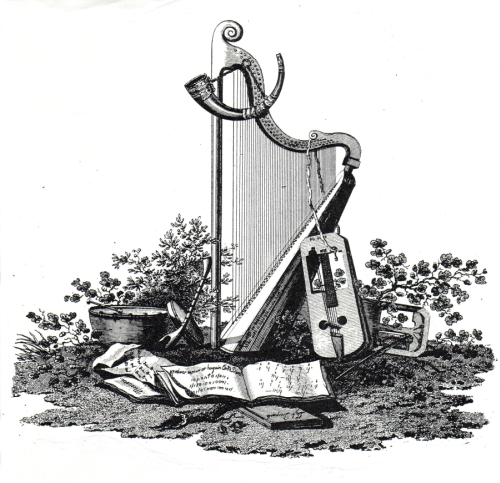by Mick Tems
Contents
- Jeff Hankins
- Jim Bainbridge
- Fernhill: Whilia
- Caladh Nua: Happy Days
- Martin Curtis: Sea To Summit
- Mary Chapin Carpenter: Time* Sex* Love*
- Frères de Sac: Tout N’a Qu’un Temps
- Phil Tanner: The Gower Nightingale
- Líadan: Casadh Na Taoide (Turning The Tide)
- The Best Of The Gathering, 2003-2004
- The Penguin Café Orchestra: Broadcasting From Home
One of the perks of a good many years’ reviewing, writing and reporting on the roots scene is my bulging, bursting album collection. It’s a pointer to more than 40 years of exciting, wonderful history, and my eyes and ears have been influenced by many brilliant and exotic sounds from Wales, Europe and the world. The good news is that roots music and folk are riding high as far as the commercial industry is concerned, and record companies and high-powered agents are vying with each other to see who wins the Folk Awards, which can mean very big bucks indeed.
Jeff Hankins
But of all the paraphernalia and razzmatazz going on, I treasure my two favourite recordings. Other CDs get filed away and forgotten, but I still keep my two Jeff Hankins sets at the top of the pile for reference and – if I’m fed up of all the new material that keeps beating a path to my door – to listen awhile and to lose myself in the intelligent, gentle humour of his poetry and the inspiring warmth of his melodies.
There were days when Making A Record meant you had really arrived. There were costly studios to be booked, and there was also the great expense of releasing the album which kept many musicians hopefully waiting in a long queue or paying a wad of money for ‘vanity’ publishing. Nowadays, digital recording means that the industry has sky-rocketed for the better. Some say it has changed for the worse; fRoots magazine, for instance, will not review cd-ROM albums or those who are obviously computer-copied. There’s no room left for the genuine recordings to write about.
But the two Jeff Hankins CDs, while computer-copied, are absolute sparkling gems; and we have Andy Jackson, former BBC Wales sound engineer, to thank for that. Andy, an ardent member of Llantrisant Folk Club, was living in a cottage in Pontyclun when he recorded the first of two Jeff gigs at the Club in 2001, and then in December 2008. Jeff’s 17 tracks of Live At Llantrisant were full of the wonder and delight of his performance: ‘No Son Of Mine’, ‘Kissing Gates’, ‘Hips And Haws’ and ‘Lottery Song’ are Jeff’s observations on living in the South Wales Valleys village of Deri, its rural location contrasted with fast-disappearing heavy industry and his loathing for the miners’ life.
Jeff is a family man and a teacher; he doesn’t push himself, and his appearances are extremely rare, like gold dust. I can count myself very fortunate to witness his performances, and ask myself why he had to choose this Club of all clubs. Jeff makes it to the Club occasionally, about every six weeks on average; but these days he comes later and leaves even earlier, leaving the audience to savour and to simply enjoy his songs.
Jeff’s second album, Prince Of Winter, grabs hold of your ears and mind with ‘M25’, a colourful illustration of the relentless, hopeless surge and flow of London’s rush-hour traffic; ‘A King’s Ransom’, written during the Royal Family’s plumbing of the popularity depths, Charles and Diana’s divorce and Queen Elizabeth’s “annus horibilis”; ‘Ardoyne Road’, written for the children of the Holy Cross school and their children, in a post-Good Friday Agreement world; ‘The Vow’, a stunningly beautiful wedding song and one which the bride and groom will want to keep for ever; ‘Kirrin Island’, memories of Enid Blyton and adventure, innocence, jingoism, racism and snobbery; ‘Kal-El’s Song’, an affectionate tribute to Superman, spiced with gentle humour; ‘Pirate Party’, a delightful, funny look back at Baden-Powell’s idea of a para-military youth movement; ‘Last Winter Sun’, a vivid painting of Deri Mountain on a golden autumn afternoon; and ‘Queen Of Autumn’, a poignant study of changing seasons and ever-changing women, and which Jeff has adopted for the title of this brilliant programme. I’m sorry if your particular favourite got missed out, but all his 15 tracks deserve a standing ovation. Not one is wasted; and I hear that Jeff is involved in a songwriters’ project, which Anne Lister (writer of ‘Icarus’, which Martin Simpson promoted and which many famous artists queued up to record) has organised – watch this space.
Jeff hasn’t got catalogue numbers for either of his two CDs, but Furze Records have.
Jim Bainbridge
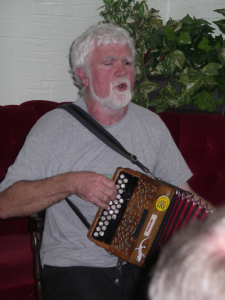
Jim Bainbridge at Llantrisant: Bob Davenport says that he “has listened and learned from the People rather than the Folk.”
Being a musician, I’m fascinated by the humble melodeon and all its curious habits; and I just love the eclectic two-row playing and singing of North-Easterner Jim Bainbridge, whose vast repertoire includes a bewildering range of traditional reels, polkas, hornpipes, scottisches and Fermanagh barndances, the wartime ‘Rum And Coca Cola’ by The Andrews Sisters, lots of Tommy Armstrong favourites, Jimmy Watt’s Fife classic ‘Keltie Clippie’, Willie Scott’s powerful and beautiful ballad ‘Jamie Raeburn’, the Liam Clancy version of ‘It’s Never Too Late To Start Living’ and a 1911 classic ‘Oh You Beautiful Doll’.
Jim, who comes from South Shields and is Durham-born, was a member of the legendary Marsden Rattlers, the resident band at The Marsden Inn’s regular Marsden Folk Club in South Shields, which was set up early in 1964 after a few months at the Beacon pub in the town. Jim said: “The band played festivals in the North and Scotland from 1964, with occasional forays to the south, for instance Cambridge Festival in 1968, but was more at home at barn dances and ceilis all over. There were a few recordings on LPs, and we were arguably the first of the ‘English’ revival bands, apart from maybe the High Level Ranters and the Rakes – even if their material was never ‘English’ in the modern sense, and nor was ours, even if we played with such as Oscar Woods and Scan Tester at times.
“The original band was very much a moveable feast, with band composition often changing from week to week. We never had any hangups about whether the material was ‘traditional’ or ‘folk’, and we often upset the ‘folk police’.”
The Marsden Ratters’ regular personnel was Jim Irvine (whistle and spoons), Jim Bainbridge on melodeon and occasional piano, Trevor Sheridan (banjo), Jim Bainbridge’s sisters Kath and Susan taking turns on the piano and fiddler John Lincoln. But Jim had a job in Customs and Excise, and he emigrated down south to Kent, where he could be heard playing up a storm on his simple two-row.
He and his wife Francie moved to West Cork in Ireland, near to the village of Ballydehob. Jim played the pubs and bars with guitarist Patrick Forester, from Cork City to the Mizen Head, butting out in the stormy Atlantic, and to remote islands such as Sherkin and Cape Clear. Playing in the noisy bars was meat and drink to Jim; both he and Patrick developed an eclectic style which was part Irish music-hall from Percy French, part Irish rebel songs, part ceili tunes and part pop songs, which kept the drinking public fascinated and ordering more pints of the black stuff. But, forever restless, Jim and Francie emigrated once more to the volcanic island of El Hierro, which was well off the beaten track in the popular tourist-inhabited Canaries; then it was south-west Scotland, in Glentrool village, and finally Northern Ireland.
Jim has recorded three CDs which vividly contrast both his and Francie’s travels and experiences. He had already recorded a cassette album, Home From Home, and The Drunken Billy Goat (FUR002CD) includes three tracks from that. This CD is full of the vibrancy and excitement of West Cork bar culture before the international bankers’ crisis suffocated it; Patrick and Jim go for broke, harvesting old jigs, barndances, reels and Kerry slides, while Jim stokes the fire with the emigrants’ songs ‘Patsy Fagan/Goodbye Mick’ and the well-known and well-loved ‘Cream Of Society’. It’s coated with the memories of this part of south-west Ireland, and I truly love it.
The Tyne area is great for Irish music and North-Eastern working-class culture, and the 2004 CD Lights On The River (FUR003CD) is just typical of that – in fact, I consider it to be the best of Jim’s three CDs. Jim recorded it alone at the Davy Lamp Folk Club, and I really admire his unfettered, freestyle squeezebox playing. The veteran Gateshead singer Bob Davenport said in his sleeve notes: “By the way, he is also a very good singer and piano player. Though Jim’s music is often heard at folk clubs, concerts and festivals, he is able to sit in a public house and play for the locals in a sing-along. The People have no wish to be Folk, and Jim has listened and learned from the People rather than the Folk.”
Although Jim recorded his second CD for a folk club, I have to say that the repertoire just edged it into a winning place. The third Furzemusic CD,Galloway House (MCD004) has him entertaining the villagers and folkies at House O’ Hill, which stands on its own in the Galloway Forest, near the lovely Glentrool, the house which has a long tradition of accordion and fiddle music. It’s now Jim’s local, and the pub’s music tradition is kept on in the informal sessions which are held there one a month. Ted Poole of Swindon Folksingers’ Club says in his sleeve notes: “These are not just for ‘folkies’ but real community events, and Jim has that happy knack of matching his performance to his audience.”
The great thing about Jim is his magnetism in holding the floor and his audience, throwing in an incredible variety of musical material. I never tire of his work, not for all the 60-odd tracks on his three CDs
Here are my Top Ten, in no particular order; I missed out on praising my favourite amazing albums, but the consolation is that I always return to the best-loved sets and savour their brilliant sounds time and time again:
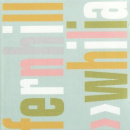 Fernhill: Whilia
Fernhill: Whilia
(Beautiful Jo BEJO30) – Ceri Rhys Matthews, his wife Julie Murphy and accordion master Andy Cutting in seven extended and fabulously ethereal Welsh gems. Julie sings like an absolute angel.
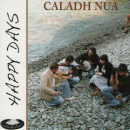 Caladh Nua: Happy Days
Caladh Nua: Happy Days
(Private Label CN001) – The name means Safe Habour in Irish, and we saw this Carlow/Waterford/Kilkenny band delivering their joyous and beautiful music at The Gathering traditional festival in Killarney. Lisa Butler (fiddle) has a pretty wondrous voice, and Eoin O’Meachair (banjo, mandolin, whistles and vocals), Paddy Tutty (fiddle), Derek Morrisey (button accordion) and Colm O’Caoimh (bouzouki, guitar and vocals) light the blue touchpaper.
Alasdair Fraser & Natalie Haas: Highlander’s Farewell (CUL 123D – Scottish fiddler, now in California, with classical cellist, based in Montreal, making absolutely stunning music together. Saw them at Roots Unearthed, bought the CD and loved it.
Martin Curtis: Sea To Summit
(Gin & Raspberry Records GRCD027) – the latest from the industrious Mr Curtis, with a breathtaking image of New Zealand’s Southern Alps and a promising package of self-written songs, including ‘Master Of The Crew’, Martin’s ‘real’ ancestor who was caught up in the mutiny on The Bounty.
Mary Chapin Carpenter: Time* Sex* Love*
(Columbia CK85176) – Mary says that time is the great gift, sex is the great equaliser and love is the great mystery; this is her 2001 CD, bulging with 14 of her incisive observations. Lately Mary has appeared on BBC4’s Transatlantic Sessions, singing beautiful harmonies with musical colleagues Karen Matheson and Julie Fowlis.
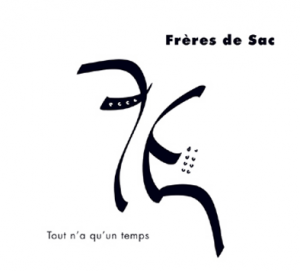 Frères de Sac: Tout N’a Qu’un Temps
Frères de Sac: Tout N’a Qu’un Temps
(Mustradem MTD733) – recorded at the Cafe Des Arts in Grenoble in January 2007, brothers Christophe (who played recorder in the amazing band Dedále) and diatonic accordionist Jean-Loup Sacchettini delight the audience with a cooking pot of valses, bourèes, polskas, laridés, dañs leon and Simon Jeffes’ ‘Music For A Found Harmonium’, which develops into a lively two-step. Exceedingly good value!
 Phil Tanner: The Gower Nightingale
Phil Tanner: The Gower Nightingale
(Veteran VT145CD) – My Gower Garland project in 2000 involved the commemoration of 50 years of Phil Tanner’s death; now John Howson, owner of Veteran Recordings, had taken on the challenge and produced a CD and comprehensive booklet, expertly ‘cleaned’ by recording engineer Ralph Jordan, who died in January. It even includes the patronising tones of BBC journalist and presenter Wynford Vaughan Thomas with his memories of Phil’s singing.
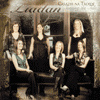 Líadan: Casadh Na Taoide (Turning The Tide)
Líadan: Casadh Na Taoide (Turning The Tide)
(LN0002) – The Gathering is certainly The Place To Be for experiencing inspiring and exciting bands, and the six musicians of Galway/ Limerick all-female group Líadan are turning heads, eyes, ears and hearts with their wild and beautiful repertoire. Absolutely stunning with harp, fiddles, whistle, piano accordion and fine harmonies.
 The Best Of The Gathering, 2003-2004
The Best Of The Gathering, 2003-2004
(Gathering Records CD001) – The first compilation CD produced in aid of the Maurice O’Donahue Instrument Fund; traditional Irish musicians and truly great bands join forces on the 15 tracks, with Jackie Daly and Seamus Creagh, Joe Burke and Anne Conroy, Noel Hill, Dervish, North Cregg and Danú included in the promising line-up. Definitely one of the best compilations from the festivals in these islands.
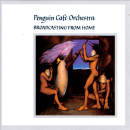 The Penguin Café Orchestra: Broadcasting From Home
The Penguin Café Orchestra: Broadcasting From Home
(EEGCD38) – The seminal 1984 Simon Jeffes album, with ‘Music For A Found Harmonium’ on it, the tune which which many bands, famous and not so famous, would give their eye teeth to record; he had a bewildering array of acoustic and curious instruments on the album, such as cuatro, milkbottles, ukelele, omnichord, soloban, omnichord and penny whistles, and the tracks included ‘Music By Numbers,’ ‘More Milk’, ‘Prelude And Yodel’ and ‘In The Back Of A Taxi’. The Folk Police might grumble, but what the hell?
